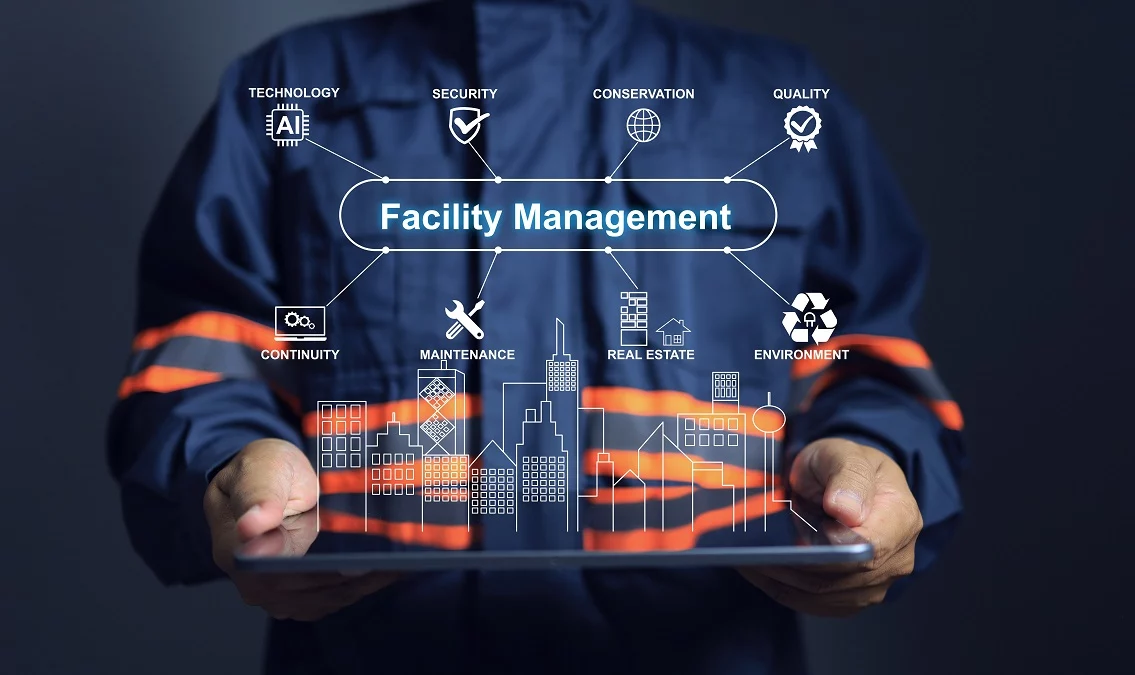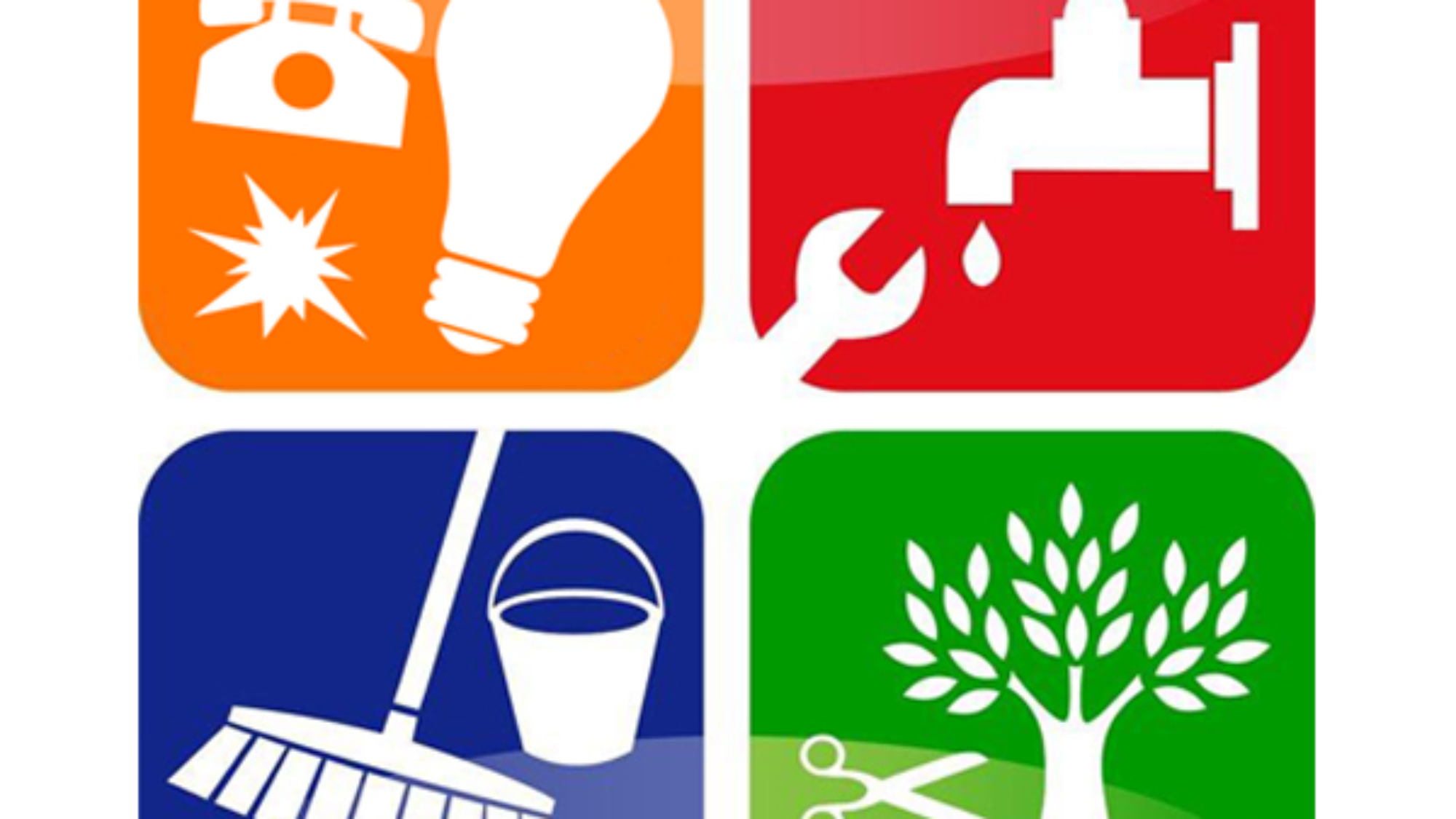Finest Practices in Facility Management for Modern Organizations
Trick Trends Forming the Future of Facility Monitoring in 2024
As we look in advance to 2024, the landscape of facility management is poised for significant transformation, driven by several crucial trends. The combination of clever structure innovations and a shift in the direction of data-driven decision-making promise to enhance functional efficiency while prioritizing sustainability in method.
Smart Structure Technologies

Smart structure innovations encompass a vast range of systems, consisting of smart lighting, cooling and heating controls, and safety and security systems. By incorporating these systems, center supervisors can keep an eye on and readjust parameters in real-time, resulting in substantial reductions in power waste and functional costs. For circumstances, clever sensors can find tenancy levels and readjust lighting and temperature level as necessary, making certain that power is just utilized when required.
In addition, these modern technologies facilitate improved information collection, allowing organizations to track use patterns and identify possibilities for more improvements. The application of wise structure innovations not only adds to sustainability goals yet also creates healthier workplace that can increase employee productivity and complete satisfaction.
As we move into 2024, the adoption of smart structure technologies will likely accelerate, mirroring a broader change towards more intelligent, receptive, and lasting facility management techniques.
Data-Driven Choice Making
Progressively, organizations are leveraging data-driven choice making to improve center monitoring techniques. By harnessing information analytics, facility managers can acquire workable understandings that dramatically enhance functional performance and resource allocation. The integration of sophisticated innovations, such as IoT sensors and real-time surveillance systems, enables the collection of large amounts of data on building performance, tenancy prices, and energy intake.
This wealth of info enables center supervisors to identify patterns, predict upkeep demands, and proactively address issues before they escalate. For instance, anticipating analytics can forecast tools failures, reducing downtime and fixing expenses. In addition, data visualization devices facilitate better interaction amongst stakeholders, making certain that educated choices are made collaboratively.
Moreover, data-driven methods enhance tactical planning by making it possible for facility managers to analyze the performance of existing practices and make informed selections pertaining to investments in innovation or framework. As companies progressively prioritize functional excellence, data-driven choice production is positioned to end up being a keystone of successful center monitoring methods in 2024 and beyond. Inevitably, the capability to leverage information efficiently will empower organizations to develop much more efficient, effective, and durable centers.
Sustainability and Eco-friendly Practices
The emphasis on data-driven choice making naturally straightens with the expanding focus on sustainability and environment-friendly practices within center administration. As organizations increasingly focus on environmental obligation, facility supervisors are leveraging analytics to optimize source usage, minimize waste, and reduce carbon impacts. This tactical strategy allows the assimilation of energy-efficient systems, such as LED illumination, clever a/c controls, and renewable resource sources right into center operations.
In addition, the application of lasting practices expands past power usage. Center managers are embracing eco-friendly materials and advertising recycling campaigns to develop a circular economic climate within their centers. This not just enhances the environmental account of the company but likewise cultivates a society of sustainability among workers.
Conformity with environmental laws is an additional vital facet driving the fostering of green methods. By using information analytics, center managers can keep track of compliance metrics and determine areas for renovation, making sure adherence to international and regional sustainability requirements.
Crossbreed Work Models
A substantial shift in the direction of crossbreed job versions is improving the landscape of center management in 2024. This paradigm integrates remote and in-office job, requiring a reevaluation of room application, source allocation, and employee interaction strategies. Organizations are increasingly recognizing the importance of flexible workspaces that cater to diverse needs and preferences.
Center managers have to adapt by applying versatile workplace designs that support joint efforts while supplying areas for focused job. This includes the combination of modern technology to help with smooth communication and collaboration amongst in-office and remote employees. Smart building remedies, equipped with sensors and analytics, permit real-time monitoring of space usage, enabling companies to enhance their atmospheres effectively.
Moreover, crossbreed job versions highlight the need for efficient facility management that prioritizes staff member experience. This incorporates not only technology and area design yet also the development of policies that promote a well balanced work-life dynamic. As firms browse this change, the role of facility monitoring becomes crucial in creating an active office that cultivates performance and drives organizational success. Fundamentally, the crossbreed work model is transforming facility management, encouraging a positive strategy to fulfill the developing needs of the workforce.
Boosted Passenger Health
As organizations embrace hybrid work versions, an enhanced Home Page emphasis on resident wellness is coming to be indispensable to center administration techniques. Facility Management. This change identifies that a healthy and balanced and pleased workforce directly influences efficiency and retention rates. Center managers are now focusing on atmospheres that promote physical and mental well-being, incorporating aspects such as natural lights, biophilic style, and accessible wellness sources

Modern technology plays a crucial function in this evolution. Smart building systems can keep an eye on environmental aspects and adjust settings in real-time, making certain optimal comfort degrees - Facility Management. Moreover, responses devices, such as tenancy sensors and staff member studies, allow center supervisors to continually refine wellness efforts based on passenger demands.

Final Thought
In 2024, the future of center management will be considerably affected by the combination of wise building innovations and data-driven decision-making, promoting enhanced operational effectiveness. Sustainability initiatives will prioritize eco-friendly methods, while the development of hybrid job designs will certainly require versatile workplace designs. An increased focus on passenger health through sophisticated Cooling and heating systems and biophilic design will contribute to much healthier work atmospheres. These patterns jointly highlight the developing landscape of center administration in feedback to contemporary difficulties and chances.
Facility managers are embracing environmentally friendly products and promoting recycling campaigns to develop a circular economic situation within their facilities.A substantial shift towards hybrid work versions is reshaping the landscape of center administration in 2024.Additionally, crossbreed job designs highlight the Learn More need for reliable facility management that focuses on worker experience.As companies accept hybrid work versions, an increased emphasis on resident health is coming to be important to center management strategies.In 2024, the future of facility management will certainly be significantly influenced by the assimilation of clever structure innovations and data-driven decision-making, fostering enhanced operational performance.